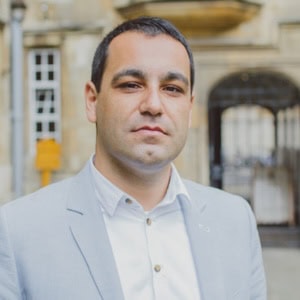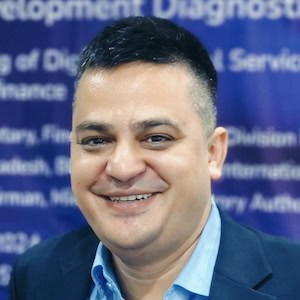-
Is Financial Inclusion Stalling? The 2017 Findex Results Raise Several Red Flags
The Global Financial Inclusion Database (Findex) - one of the most authoritative yardsticks on the state of financial inclusion - finds that 69 percent of the world’s adults now have bank or mobile money accounts. But while that's an exciting headline, it's also misleading, as millions of those newly opened accounts are lying dormant. And that's just one reason why industry stakeholders have found the latest Findex data underwhelming. Elisabeth Rhyne and Sonja Kelly at the Center for Financial Inclusion at Accion unpack some of the troubling stats – and highlight a few bright spots.
- Categories
- Finance
-
Internalizing Innovation: It’s About Creating a Culture, Not a Product
Innovation holds the key to expanding financial health for low- and moderate-income households—but how can organizations foster a culture of innovation, rather than treating it as a one-off event or a process fix? MetLife Foundation and UNCDF are launching two new innovation hubs in China and Malaysia that aim to promote this cultural shift. Krishna Thacker and Jaspreet Singh discuss the program's unique approach.
-
Nine Ways to Make Money in mHealth: The Top Value Propositions from a Study of 234 Projects in Emerging Markets
Telemedicine and mHealth initiatives often struggle in emerging markets - yet researchers seldom focus on how these ventures can better develop sustainable business models. An ambitious study of 234 mHealth projects in developing countries attempts to rectify this problem. Khanjan Mehta at Lehigh University runs down the research, highlighting the nine most common value propositions it found.
- Categories
- Health Care, Technology
-
Cutting Edge Agriculture: How Artificial Intelligence, Satellites and Big Data are Transforming Farmers’ Access to Finance
There are many reasons for the $450 billion global agricultural finance gap. But much of the challenge stems from lenders' inability to monitor farmers' output, estimate their income and assess their risk of default, says Ruchit G Garg of Harvesting Inc. He explores how artificial intelligence and satellites are addressing that data imbalance, helping lenders reach many of the world’s 500 million smallholder farmers for the first time.
- Categories
- Agriculture, Technology, Telecommunications
-
Hardware Innovation is … Hard: How These Entrepreneurs Overcame the Challenges
Compared with the creators of app-based products, hardware-focused innovators face a much more difficult and expensive journey, says Villgro CTO Arun Venkatesan. The resources and time required to perfect hardware iterations are larger, the lack of a mature ecosystem is a problem, and the buyer is often distinctly different from the user or beneficiary. Venkatesan profiles four hardware innovators in agriculture and health care, discussing how they worked through these obstacles.
- Categories
- Agriculture, Health Care, Investing, Social Enterprise, Technology
-
The Partnership Nightmare: What’s Wrong with the Social Sector’s Approach to Funding – And How to Fix It
Whether it's due to misaligned expectations, mutual distrust or power imbalances, interactions between social impact organizations and their funders can be nightmarish – for both sides. Social sector advocates Jessamyn Shams-Lau, Jane Leu and Vu Le have written a new book about these challenges, called "Unicorns Unite." In this Q&A, they discuss what's gone wrong – and how to make it better. Subscribers to NextBillion’s weekly e-newsletter can read an excerpt of the book throughout June.
- Categories
- Investing, Social Enterprise
-
From Local to Global: The Questions SMEs Should Answer Before Exporting
Whether it helps them survive in a competitive local economy or lets them scale beyond it, foreign market entry can be a vital step for small and medium enterprises (SMEs) in emerging markets. But it also represents a major risk for a small business – one that can easily result in failure. Daniel DeValve of the William Davidson Institute highlights three case studies that explore the challenges Philippine SME owners faced in considering a move to a new market – along with the impact their decisions had on their businesses.
- Categories
- Uncategorized
-
A Mini-Grid Milestone: Can the Industry’s First Trade Association Help Electrify Rural Africa?
In April, the mini-grid industry got its first-ever trade association, as the Africa Mini-grid Developers Association (AMDA) launched with chapters in Kenya and Tanzania – and ambitious goals for expansion across the continent. Though AMDA's membership currently includes about a dozen companies providing 11,000 connections, it aspires to represent 90 percent of the mini-grid sector by the end of 2021. In a Q&A with Scott Anderson, AMDA co-founder Jessica Stephens discusses its plans to transform the mini-grid industry from a feel-good alternative to a power player in the energy sector.
- Categories
- Energy










